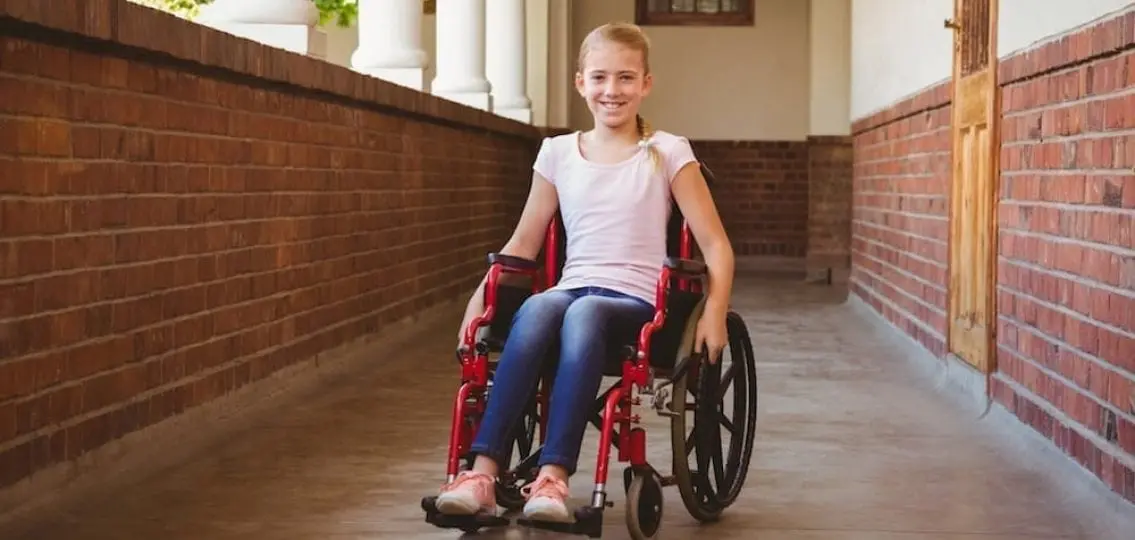“Allie, did you write this signature?” my third-grade teacher asked me, disapproval etched in the lines of his face.

I glanced down at the permission slip on his desk. Rather than the elongated, perfectly imperfect strokes of an average adult, the letters of my mom’s name were short and stubby, like a child’s shaky attempt to replicate the lines on a cursive alphabet guide.
“No, I didn’t,” I said, staring at him.
“My mom is blind.”
My mom suffers from Retinitis Pigmentosa (RP), an inherited group of diseases causing retinal degeneration. As the retina deteriorates, patients with RP experience a gradual decline in their central, peripheral, and color vision. Most people are diagnosed in childhood and become legally blind by age 40.
My mom began to lose her vision when she was four years old and has been legally blind for most of her life now. She describes her vision as “looking through swiss cheese,” with blind spots obstructing most of her view.
It’s difficult for me to understand what my mom can and can’t see. Strangers often don’t recognize that she is visually impaired until she fails to meet their eyes when speaking to them, focusing instead on the side of their face or the space behind them.
Taking Care of A Disabled Parent
I have a complicated relationship with my mom because of her blindness. Sometimes I become frustrated with the constant need to help with ordinary tasks.
“Allie! Can you set the oven to 350℉?”
“Allie! Can you find the grape I dropped on the ground?”
“Allie! Can you come here and tell me what color this towel is?”
My mother can’t help that she has a disability, but her calls for assistance feel like inconveniences added onto my already busy days.
When we walk together outside, shop in stores, or go anywhere unfamiliar, my mom latches tightly onto my arm. When approaching stairs or a curb, I tell her to “step up” or “step down.” When she wants to go shopping, I’m the first called to be her chauffeur. When it’s time for her pay, I act as a middleman between her and the cashier.
I’m not my mother’s caregiver, but I am her guide. And just as a parent guides their child to be independent, like removing their hands from the handles of their bicycle, I try to guide my mom towards self-sufficiency.
On build-your-own taco night, when my hands are full of my own creation, I verbally direct her so she can find the cilantro lime sauce on the table.
“Up. Left. More left. That’s it. Now, pour it. Oops, that’s enough.”
My Mom is Still My Mom
My mom can do a lot on her own thanks to accessibility tools and her magnifying glass. She enjoys buying fabric online and sewing quilts for family and neighbors, and the only help she requires from me is the assurance that her patterns aren’t facing the wrong direction.
Even though our roles often feel reversed, my mom and I have a fairly traditional mother-daughter relationship. I admit I have sneakily tried to use my mom’s weakness to my advantage in the past, like pretending to eat a spinach salad I didn’t like.
But I haven’t gotten away with everything. My mom may not be able to see, but she can sure hear well! I’ve been caught throwing away my pears when the slight thud of the slices in the trashcan were just loud enough.
More importantly, my mom has never allowed her blindness to hinder her maternal instinct.
When I was in a minor car crash this past year, the first thing I did was call my mom. Like any mother would, she immediately told me she was on her way. The accident happened only a few minutes’ walk away from my house, but reaching me required her to walk across a busy street on her own. She managed to cross the street and then called me to direct her the rest of the way to my location.
Watching my mother find my car, stepping awkwardly over curbs and through the grass to get to me, gave me a feeling of relief— and pride.
I had become so accustomed to taking on the responsibilities of an adult that I had forgotten I still needed my mom’s protection and comfort.
Throughout my childhood of living with a visually impaired parent, I have rarely thought about how my family is different from others. I expect to see my mom reach for my arm when we are walking somewhere. I expect to hear her voice call me for help several times a day. I expect to feel nervous when she wanders off by herself in stores, concerned she will run into something or mistake someone else for me.
My mom will never really know what I look like. Through her eyes, I’m just a distortion of pale skin, dark hair, and clothes whose colors and patterns she can’t distinguish. But she will always know who I am and how I’m feeling by the fluctuations in my voice and the sound of my feet moving through the house.

The fact that my mom is blind has created a different kind of bond between us. A bond strengthened by the disability she lives with and the unconventional relationship we have built together. And my mom being blind doesn’t make her any less of a parent— or her shaky signature any less valid.




